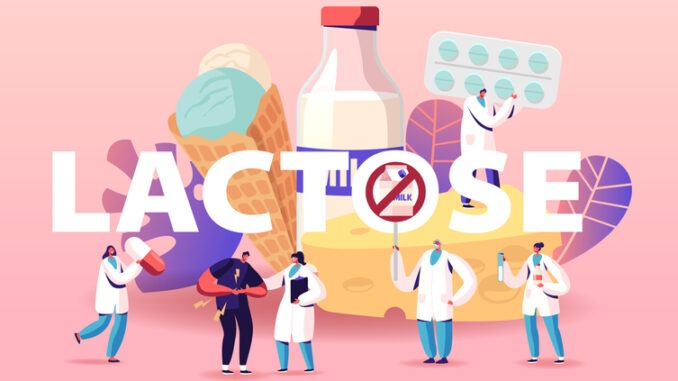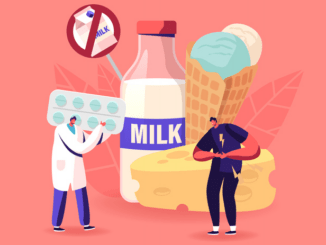
A common digestive problem where the body is unable to digest a type of sugar mainly found in milk and dairy products
CREDIT: This is an edited version of an article that originally appeared on NHS
Symptoms
These usually develop within a few hours of consuming food or drink that contains lactose:
- farting;
- diarrhoea;
- a bloated stomach;
- stomach cramps and pains;
- stomach rumbling;
- feeling sick.
The severity, and when they appear, will depend on the amount of lactose you have consumed.
Seeking medical advice
The symptoms of lactose intolerance can be similar to other conditions, so GPs can help give a diagnosis before milk and dairy products are removed from a diet. For example, the symptoms above can also be caused by:
- irritable bowel syndrome;
- milk protein intolerance – an adverse reaction to the protein in milk from cows (which is NOT the same as a milk allergy).
Avoiding foods and drinks containing lactose for two weeks is a good way to test to see if your symptoms improve.
What causes lactose intolerance?
The body digests lactose using a substance called lactase, which breaks down lactose into two sugars called glucose and galactose; these can be easily absorbed into the bloodstream. People with lactose intolerance do not produce enough lactase, so lactose stays in the digestive system, where it’s fermented by bacteria. This leads to the production of various gases, which cause the symptoms associated with lactose intolerance.
Who’s affected
In the UK lactose intolerance is more common in people of Asian or African-Caribbean descent. Most cases that develop in adults are inherited, and tend to be lifelong, but cases in young children are often caused by an infection in the digestive system and may only last for a few weeks.
Is it an allergy?
Lactose intolerance is not the same as a milk or dairy allergy. If you’re allergic to something, even a tiny particle can be enough to trigger a reaction; however, most people with lactose intolerance can still consume small amounts of lactose without experiencing any problems.
Treatment
There’s no cure for lactose intolerance but cutting down on food and drink containing lactose usually helps to control the symptoms. Lactose-free products include:
- lactose-free cows’ milk;
- soya milk, yoghurts and some cheeses;
- rice, oat, almond, hazelnut, coconut, quinoa and potato milk.
Calcium and vitamin D supplements can also help, as can lactase substitutes. These are drops or tablets you can take with your meals or drinks to improve your digestion of lactose.
Complications
Milk and other dairy products contain calcium, protein and vitamins, such as A, B12 and D. Lactose helps your body absorb several other minerals, such as magnesium and zinc, which are important for the development of strong bones. If you’re lactose intolerant, getting the right amount of vitamins and minerals can prove difficult which may lead to unhealthy weight loss and put you at increased risk of developing the following conditions:
- osteopenia – where you have a very low bone-mineral density; left untreated, it can develop into osteoporosis;
- osteoporosis – where your bones become thin and weak, and your risk of breaking a bone is increased;
- malnutrition – when the food you eat does not give you the nutrients essential for a healthy functioning body; this means wounds can take longer to heal and you may start to feel tired or depressed.
GPs should be able to refer someone who is lactose intolerant to an NHS dietitian free of charge.


Be the first to comment